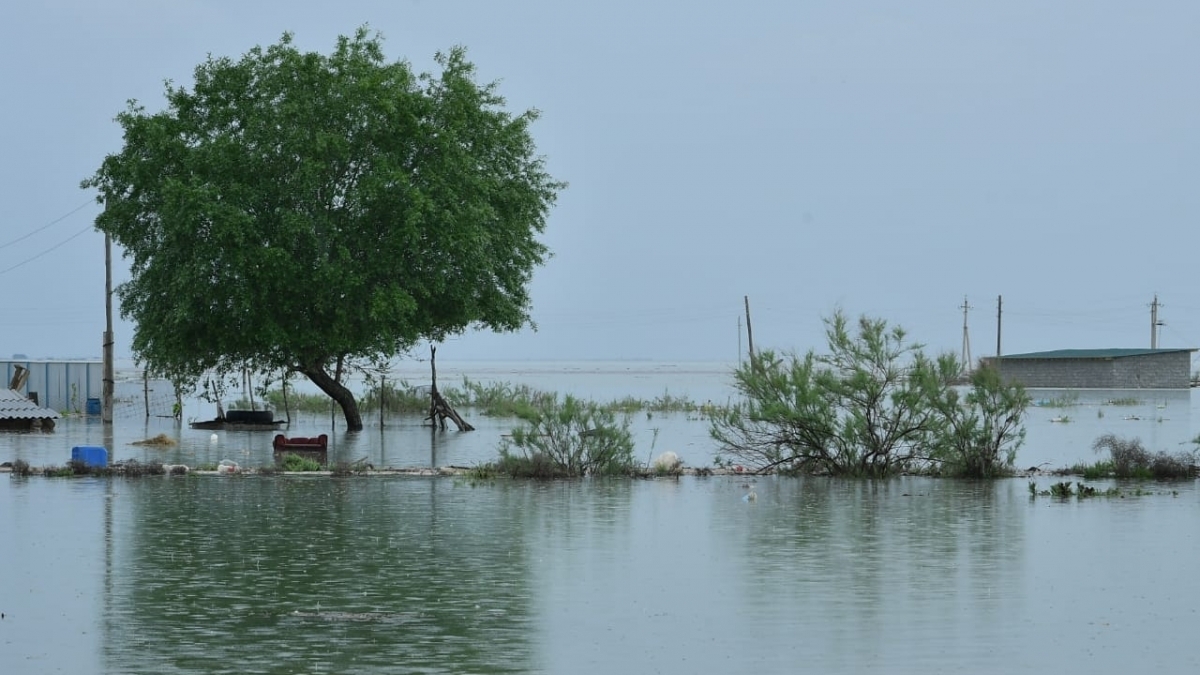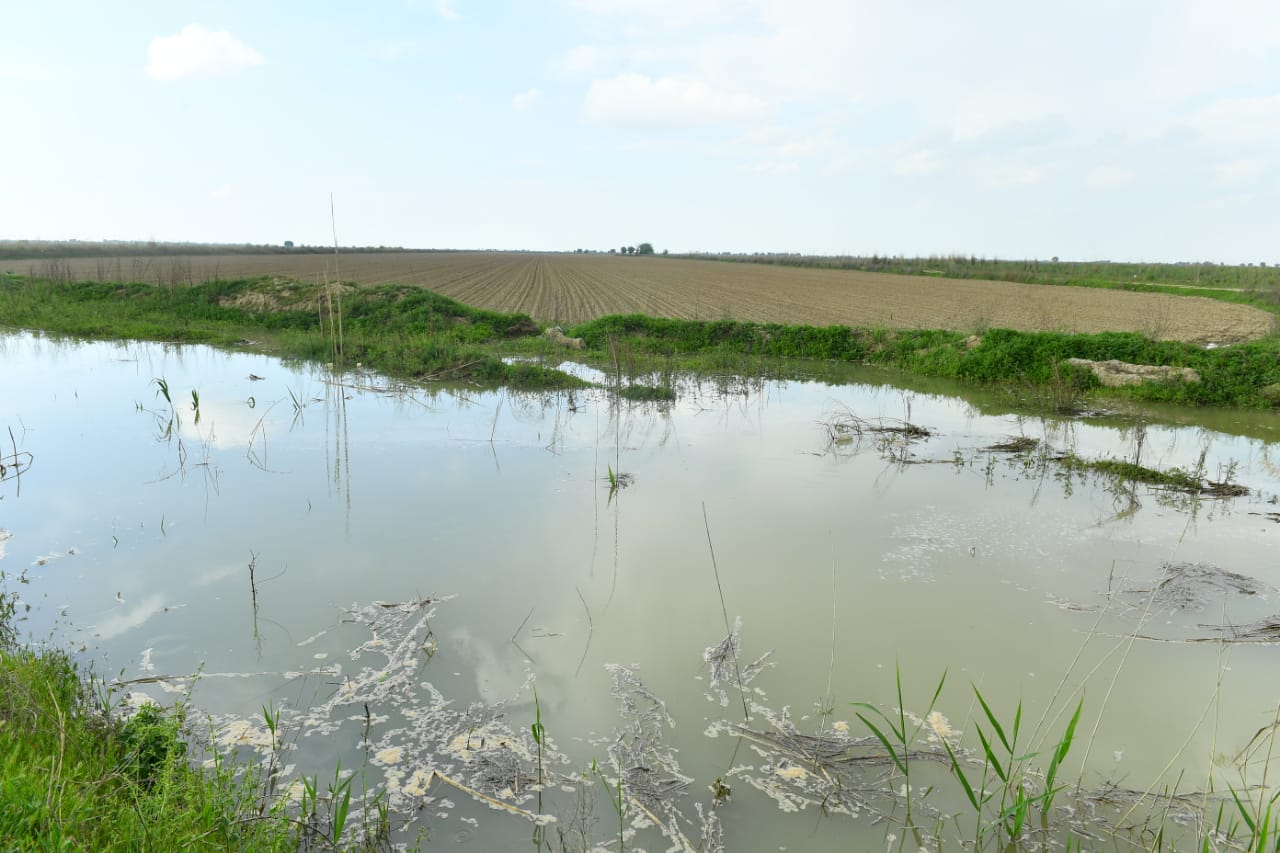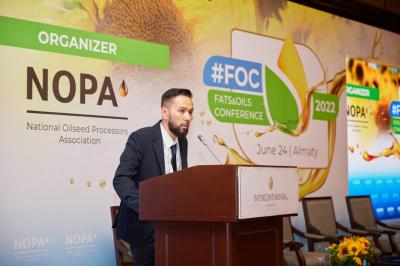
Residents of Maktaaralsky district of Turkestan region are in distress. As is known, in the morning of 1 May, the dam of the Sardobin reservoir in Uzbekistan broke through after heavy rain and storm wind. This led to a discharge of water from the reservoir on 2 May at the border of Maktaaral district, which caused several settlements to be flooded. As a result, more than 600 residential buildings were damaged and more than 30,000 people needed to be evacuated.
The agricultural sector in the district was also affected by the emergency situation. On 3 May, Deputy Head of the Regional Department of Agriculture Turghanbek Ospanov stated that about 3601 hectares of crops have already been flooded. By preliminary estimations, the damage will amount to 404 million tenge. The most affected areas are villages Zhenis, Zhanaturmys and Zhantaksai of rural districts Zhanazhol and Enbekshi. It has been found that 85% of the flooded area is covered by cotton crops, the rest by alfalfa and maize.
For today evacuation of cattle in villages with risk of flooding in Maktaaral district continues. 3115 cattle, 1101 horses, 585 sheep and 34 camels have already been evacuated from 7 flood-affected villages: Zhenis, Zhanaturmys, Zhantaksai, Ferdowsi, Enbekshi, Nurlytan, Orgebas. The number of drowned animals is not yet known.
 Photo by turkistan.gov.kz
Photo by turkistan.gov.kz
These unfortunate events have again made us think about the role of insurance in the lives of rural farmers. While a government commission is working on the scene, and the residents of the district are slowly returning to their homes, we thought about how the farmers will recover their losses. How can they defend themselves against such force majeure situations? How developed is insurance in agriculture in our country as a whole?
We have discussed all this in an interview with Yeldos Auezbekov, Chairman of ALE "Association of Agroinsurance".
 In your opinion, how serious is the damage to the agricultural sector of the region due to the flood?
In your opinion, how serious is the damage to the agricultural sector of the region due to the flood?
- The risk of such flooding in the south of the country appeared, one might say, for the first time. In general, in Kazakhstan, floods occur almost every year or every other year in Akmola and East Kazakhstan regions. That is, snow melts, rivers come out of the banks and so on. This is an ongoing problem. Therefore, either local executive bodies or farmers must insure all these risks.
As for Maktaaral district, I know from the latest news that 10 rural districts have been flooded there, that's a lot. Given the scale, we can assume that all the crops that have already been sown and perennial plantings will suffer. It is difficult for me now to say how much of this damage is in figures, but I assume that if 10 rural districts are affected, the area is large enough.
 Photo by turkistan.gov.kz
Photo by turkistan.gov.kz
How will the farmers recover these damages?
- I am more than sure that the farmers there were not insured, because the compulsory crop insurance expired in October last year, and the voluntary insurance has not yet started to work. Therefore, all this is at the discretion of the Government. Whether there will be any compensation from the reserve funds or not, this is not a question for me. But of course, we must help, it is a real emergency.
Today, under conditions of emergency, the agricultural sector in our country is given priority in order to ensure food security. As I said above, now, due to the fact that voluntary insurance and subsidies from the state do not work yet, farmers will probably need some help. But ideally all such risks should be covered by quality insurance coverage, so that, for example, the Flood parameter would work and the insurance payment would be made automatically.
How developed is the insurance in agriculture in our country today?
- Today, the culture of consumption of insurance products in our country is extremely low, and this applies not only to agriculture. If we talk about the agricultural sector, the volume of insurance coverage has been declining annually lately. As far as I remember, according to the data for 2018-19 years, less than 30% of farmers were insured.
In October 2019, we adopted amendments to the law on agriculture. In January 2020, they became effective. According to these amendments, our country has made a transition from compulsory insurance in crop production to voluntary insurance, which provides for subsidizing part of the cost of insurance.
The rules are now at the stage of approval by the state bodies. Until 1 June, we expect the rules to be adopted, the system should work. Technically, we are fully ready.
Why has there been a transition from compulsory to voluntary insurance? In compulsory insurance, the state participated in subsidizing insurance payments. That is, if there was a loss, conditionally, if a farmer should have received a million tenge, then from this money the insurance company paid 50%, and another 50% was paid by the state, thus taking part in such risks.
But world experience tells us that the state should not take part in such risks, as it is the task of specialized companies, the market.
Therefore, it was decided to move away from state insurance to market insurance, where the state helps farmers buy this insurance so that they can protect themselves legally and financially. In addition, the voluntary form of insurance provides for various products for different regions, different crops. This will have a positive impact on the whole area.
What other benefits does voluntary insurance bring?
- Insurance is a tool to reduce risks. But also one of the main ideas of the transition to the voluntary form of insurance is that these insurance products can be used as a partial collateral security. One of the main problems farmers have is access to finance. In crediting, there is usually either a lack of collateral or no collateral at all.
Therefore, a new form of insurance provides access to finance. When quality insurance products with high ratings are used, credit institutions are more willing to lend. Obviously, insurance will not be taken for the full cost of collateral, but it can be partially applied.
If the rules are accepted now and the system works, we do not expect a massive influx of clients. We need to conduct explanatory work here, preferably with a field trip. Farmers need to be shown the cost effectiveness of insurance. Thus, it will be easier for entrepreneurs to get a loan, and if an insured event occurs, they can reimburse their expenses.
With the introduction of voluntary insurance, it will be much more profitable for farmers to work. All the more so because the state will provide significant assistance in terms of reimbursing part of the expenses for purchasing insurance policies. Besides, due to the fact that it will be a competitive market, new insurance products will start to appear and they will become cheaper. Competition always leads to development.
Thank you for the interview!
 Photo by primeminister.kz
Photo by primeminister.kz
P.S. on the morning of 5 May it became known that the Government will provide all necessary assistance to the victims of the flood in Turkestan region. This statement was made by Prime Minister Askar Mamin at a meeting of the Government.
"A government commission chaired by Deputy Prime Minister Roman Sklyar was established, which included the heads of central and local executive bodies. The commission will promptly assess the damage in five villages: Zhana Turmys, Zhenis, Ferdowsi, Orgebas, Dostyk. It will then begin work on the reconstruction of engineering, transport, social infrastructure and housing. The government will provide all necessary assistance to the victims," Mamin said.
According to the Akim of Turkestan region Umirzak Shukeyev, after the water leaves the settlements, the commission plans to go by each house to assess the damage.
"After that, we will consider how to restore and compensate for the damage," stated Regional Akim.






































 Photo by turkistan.gov.kz
Photo by turkistan.gov.kz In your opinion, how serious is the damage to the agricultural sector of the region due to the flood?
In your opinion, how serious is the damage to the agricultural sector of the region due to the flood? Photo by turkistan.gov.kz
Photo by turkistan.gov.kz Photo by primeminister.kz
Photo by primeminister.kz





Обсуждение